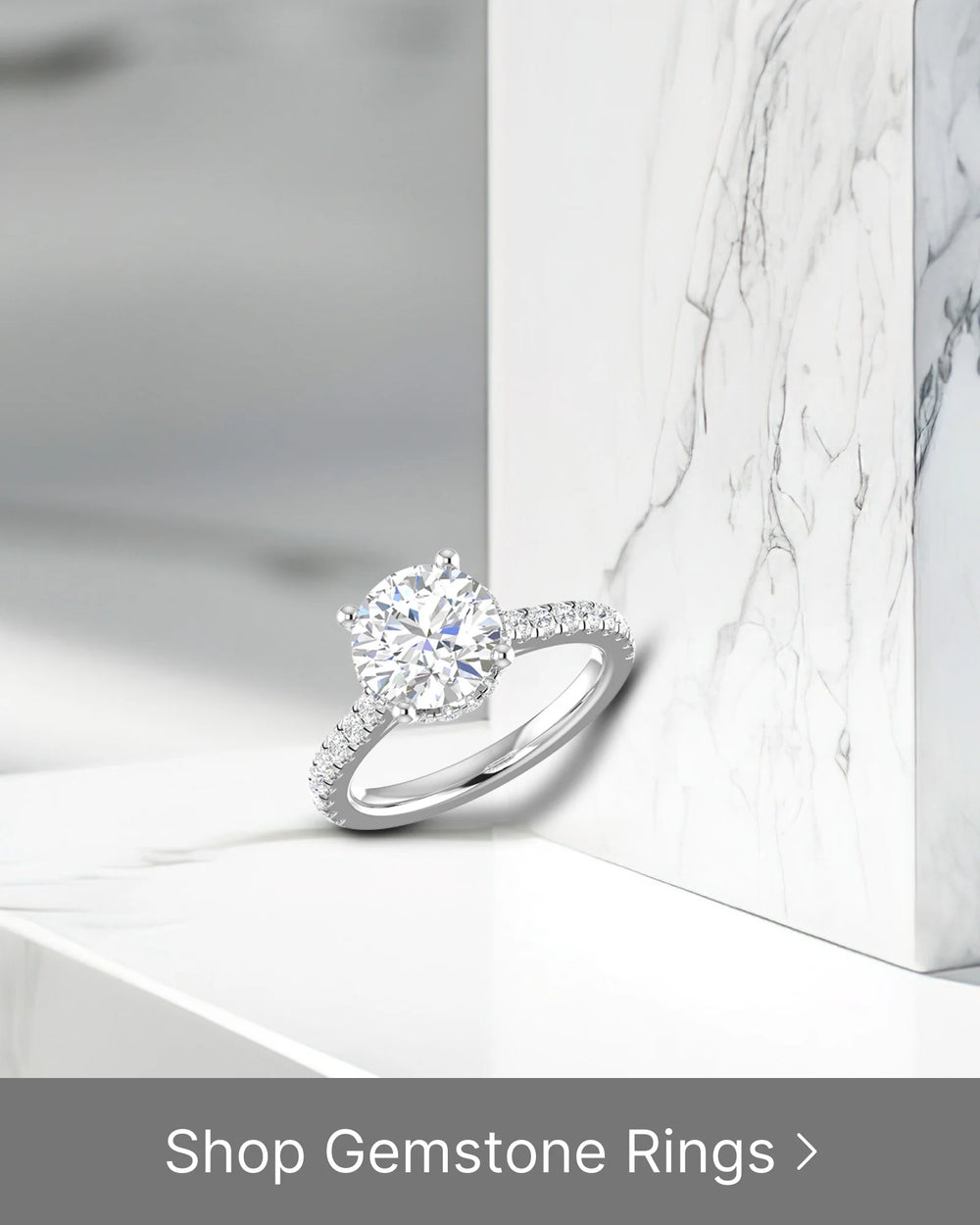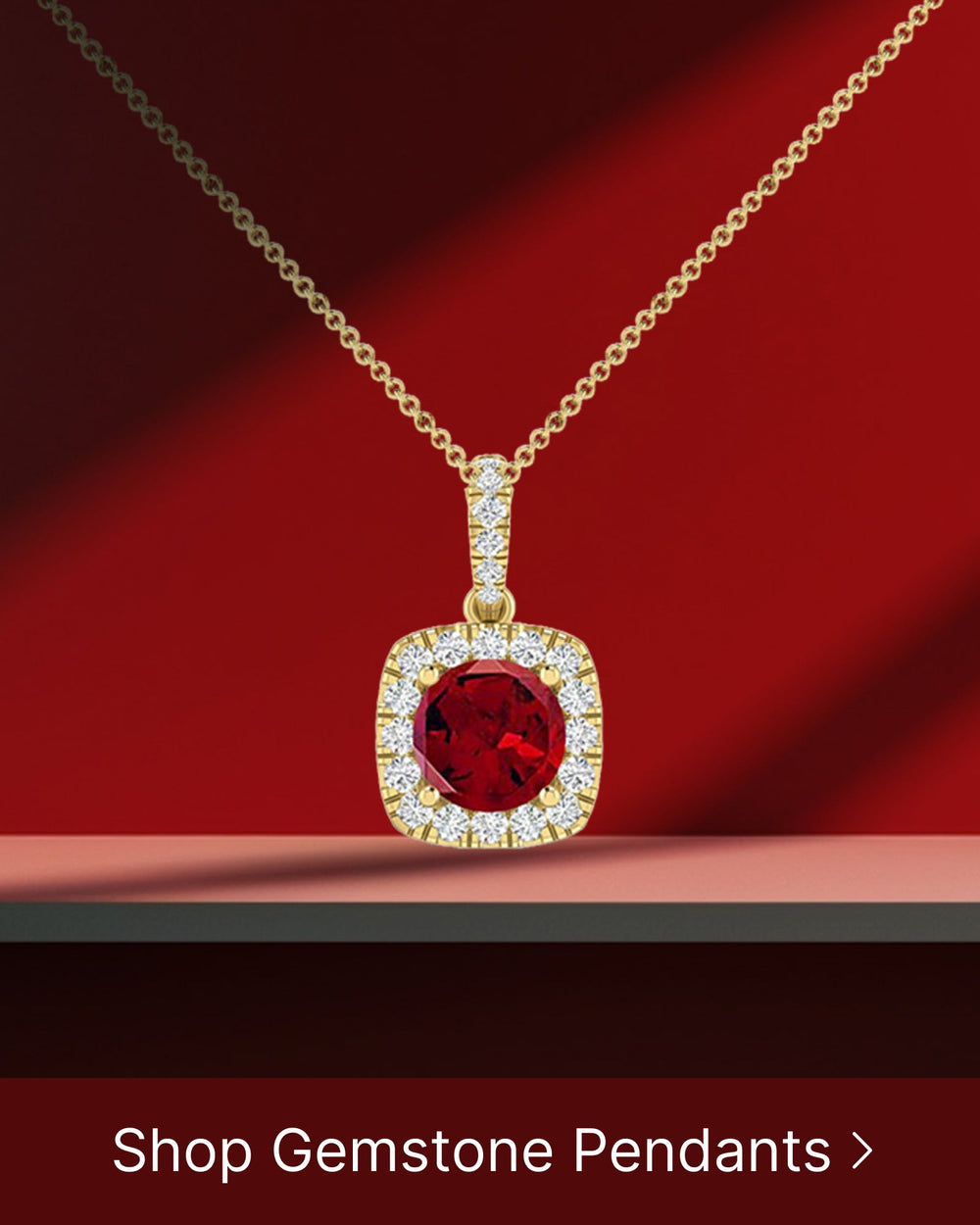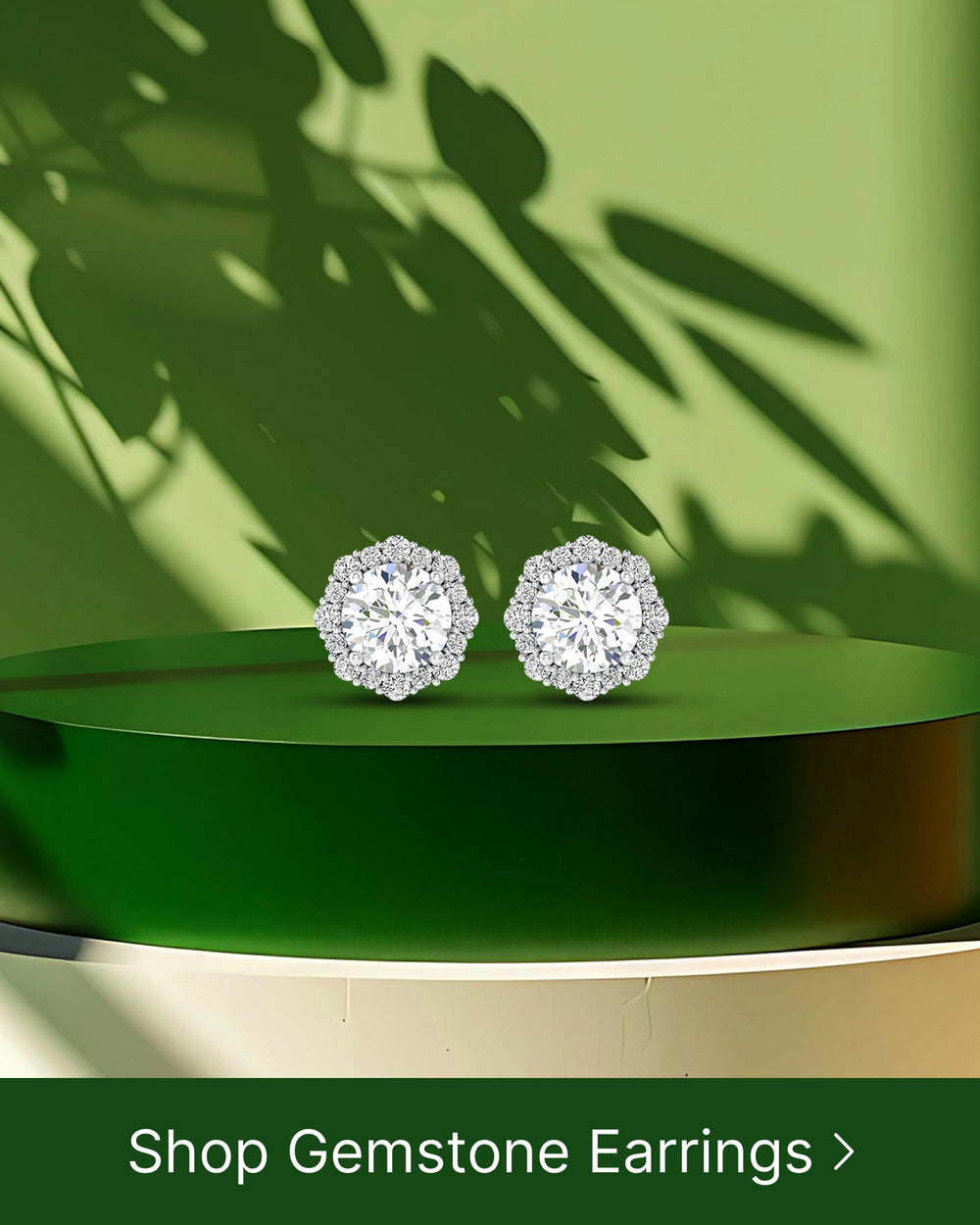Diamonds have long been the traditional choice for engagement rings, but more and more people are opting for diamond alternatives. Whether it's due to ethical concerns, budget considerations, or simply personal preference, there are plenty of reasons to explore other options. In this guide, we'll take a closer look at diamond alternatives, factors to consider when choosing one, popular options in the market, caring for your alternative engagement ring, and how to make the final decision. So let's dive in and discover the perfect diamond alternative for you!
Understanding Diamond Alternatives
If you're considering a diamond alternative, it's important to understand what they are and what sets them apart from traditional diamonds. Diamond alternatives are gemstones that resemble diamonds in appearance but are not actually made of carbon. They offer similar brilliance and sparkle, but at a fraction of the cost. Additionally, diamond alternatives provide an opportunity to choose a more sustainable and responsible option.
When it comes to diamond alternatives, the options are vast and diverse. Let's take a closer look at some of the most popular alternatives:
1. Moissanite
Moissanite is a naturally occurring gemstone that closely resembles a diamond. It is known for its exceptional brilliance and fire, often surpassing that of a diamond. Originally discovered in a meteorite crater, moissanite is now lab-created to ensure its availability and affordability. This alternative offers a stunning choice for those who desire a diamond-like appearance without the high price tag.
2. White Sapphire
White sapphire is another natural gemstone that is frequently used as a diamond alternative. It possesses a similar hardness to a diamond and exhibits a beautiful sparkle. While white sapphires may not have the exact same brilliance as diamonds, they still offer a captivating and elegant look. Choosing a white sapphire as an alternative allows you to embrace a unique and distinctive gemstone.
3. Cubic Zirconia
Cubic zirconia, often referred to as CZ, is a lab-created gemstone that has been a popular diamond alternative for many years. It is known for its affordability and remarkable resemblance to a diamond. While cubic zirconia may not possess the same durability as a diamond, it still offers a stunning and budget-friendly option for those seeking a diamond-like appearance.
Now that we've explored some of the most common diamond alternatives, let's delve into the benefits of choosing these alternatives for your engagement ring:
Benefits of Choosing Diamond Alternatives
There are several advantages to selecting a diamond alternative for your engagement ring. First and foremost, they are more budget-friendly. With the rising cost of diamonds, alternative gemstones offer an affordable option without compromising on beauty or sparkle. This allows you to allocate your budget towards other important aspects of your wedding or future plans.
Furthermore, opting for a diamond alternative allows you to make a statement and choose a unique, personalized ring that reflects your individuality. With a wide variety of alternative gemstones available, you can select the one that resonates with your style and preferences. Whether you prefer the fiery brilliance of moissanite, the timeless elegance of white sapphire, or the affordability of cubic zirconia, there is a diamond alternative that suits your taste.
Lastly, diamond alternatives are often considered more ethical as they do not contribute to the controversial diamond mining industry. The diamond mining industry has been associated with environmental concerns and human rights issues. By choosing a diamond alternative, you can have peace of mind knowing that your engagement ring aligns with your values and supports a more sustainable and responsible approach.
In conclusion, diamond alternatives offer a compelling option for those seeking the beauty and sparkle of a diamond without the high cost or ethical concerns. Whether you choose moissanite, white sapphire, cubic zirconia, or another alternative, you can find a gemstone that captures your heart and tells your unique love story.
Factors to Consider When Choosing a Diamond Alternative
When making the decision to choose a diamond alternative, there are a few key factors to keep in mind. These include budget considerations, durability and longevity, and ethical concerns.
Choosing the perfect engagement ring is an exciting and meaningful process. It's a symbol of love and commitment that will be cherished for a lifetime. While diamonds have long been the traditional choice, many people are now exploring alternative options that offer unique advantages. By considering these factors, you can make an informed decision that suits your personal preferences and values.
Budget Considerations
One of the main advantages of diamond alternatives is their affordability. However, it's still important to establish a budget and stick to it. Consider how much you're willing to spend and explore options within that range. Remember, a smaller budget doesn't mean you have to compromise on style or quality.
There are various diamond alternatives available at different price points. For example, moissanite is a popular choice due to its diamond-like brilliance and lower cost compared to natural diamonds. Other options include white sapphire, cubic zirconia, and lab-created gemstones. By setting a budget, you can narrow down your choices and find a stunning alternative that fits within your financial means.
Durability and Longevity
Engagement rings are meant to last a lifetime, so it's crucial to choose a diamond alternative that is durable and will withstand everyday wear. Some alternatives, like moissanite and white sapphire, are known for their durability and resistance to scratches. These gemstones are ideal for those with an active lifestyle or jobs that require frequent hand movements.
On the other hand, cubic zirconia, while more affordable, may require more careful handling to maintain its shine and clarity. It is a softer stone compared to moissanite and sapphire, and therefore may be more prone to scratches over time. However, with proper care and regular maintenance, cubic zirconia can still maintain its beauty and sparkle for years to come.
Ethical Concerns
If ethical concerns are important to you, be sure to choose a diamond alternative that aligns with your values. Look for gemstones that are responsibly sourced and produced, whether they are natural or lab-created. Ethical sourcing ensures that the gemstones are obtained in a way that respects human rights and minimizes environmental impact.
Lab-created gemstones, such as lab-grown diamonds and moissanite, offer a sustainable and ethical choice. These gemstones are created in a controlled environment, reducing the need for mining and the associated environmental and social issues. They are chemically and visually identical to their natural counterparts, offering a guilt-free alternative for those who prioritize ethical considerations.
Additionally, some natural gemstones, like sapphires, are often sourced from countries with strict labor and environmental regulations. By choosing gemstones from these regions, you can support responsible mining practices and ensure that your engagement ring has a positive impact on the communities involved.
Ultimately, the choice of a diamond alternative is a personal one. By considering budget, durability, and ethical concerns, you can find a stunning and meaningful engagement ring that reflects your unique style and values. Whether you opt for a dazzling moissanite, a brilliant white sapphire, or a sparkling cubic zirconia, your choice will be a symbol of love and commitment that will be cherished for a lifetime.
Popular Diamond Alternatives for Engagement Rings
Now that we've covered the factors to consider, let's explore some of the most popular diamond alternatives in the market. These options offer a range of styles and price points, so you're sure to find something that suits your taste.
Moissanite Engagement Rings
Moissanite is a lab-created gemstone that closely resembles diamonds. It has exceptional brilliance and fire, making it a stunning choice for an engagement ring. Plus, moissanite is known for its durability, making it suitable for everyday wear.
White Sapphire Engagement Rings
White sapphires are natural gemstones that offer a brilliant white sparkle. While they may not have the same level of brilliance as diamonds, they are still incredibly beautiful and can be a more affordable option for those on a budget.
Cubic Zirconia Engagement Rings
Cubic zirconia, or CZ, is a lab-created gemstone that closely resembles diamonds. It is known for its affordability and versatility, with a wide range of cuts and styles available. While it may not have the same durability as other alternatives, cubic zirconia can still provide a stunning look at a fraction of the cost.
Caring for Your Diamond Alternative Engagement Ring
Once you've chosen your diamond alternative engagement ring, it's important to take proper care of it to ensure its longevity and beauty.
Cleaning and Maintenance Tips
Regular cleaning is essential to keep your ring looking its best. Most diamond alternatives can be cleaned using warm soapy water and a soft brush. Avoid using harsh chemicals or abrasive materials that could damage the gemstone or setting. Routine maintenance, such as checking prongs and settings, is also recommended to prevent any potential damage or loss of stones.
Protecting Your Ring from Damage
While diamond alternatives are durable, they still require some care to avoid unnecessary damage. Remove your ring when engaging in activities that could potentially damage it, such as sports or heavy lifting. Consider getting insurance to protect your investment in case of loss, theft, or damage.
Making the Final Decision
Choosing the perfect diamond alternative engagement ring is a personal decision that involves considering your personal style and lifestyle.
Assessing Your Personal Style
Think about the overall aesthetic you desire for your engagement ring. Do you prefer a classic, timeless design or a more modern, unique style? Consider factors such as the metal type, setting style, and overall design that best reflects your individuality.
Taking Your Lifestyle into Account
Your daily activities and occupation can impact the type of engagement ring that is right for you. If you lead an active lifestyle or work with your hands, you may want to choose a diamond alternative that is highly durable and less prone to damage.
Consulting with a Jewelry Expert
If you're still unsure about which diamond alternative to choose, don't hesitate to seek advice from a jewelry expert or gemologist. They can guide you through the selection process, taking into consideration your preferences, budget, and lifestyle.
By considering all these factors and exploring the wide variety of diamond alternatives available, you can find the perfect engagement ring that captures your love and personal style. Remember, the most important thing is choosing a ring that brings joy and represents the unique bond you share with your partner. Happy ring hunting!





